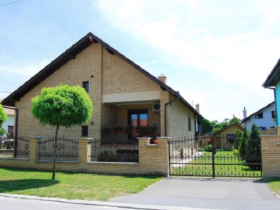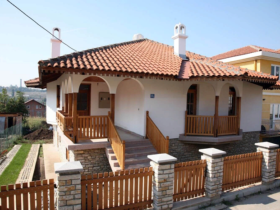From the clumsy «divorce vulgaris» to the well-thought-out construction mafia — how scammers in Serbia deceive buyers and tenants of real estate. And how to protect yourself as much as possible to a foreigner, a tidbit for such breeds.
First of all, a foreigner needs to distinguish between situations where the purchase of real estate is impossible for him at all (no matter what the seller fills in), and situations where such a purchase is “only” high-risk.
1. Let me remind you: in Serbia, for plots of land, its purpose is always determined. For example, građevinsko zemljište is construction land, poljoprivredno zemljište is agricultural land. And foreigners — both individuals and legal entities — are prohibited from buying agricultural land.
An exception is citizens of the European Union, under certain conditions (see the Law on Agricultural Land/Zakon o poljoprivrednom zemljištu, article 72đ).
Also, to some extent, this law is bypassed through the company: companies based in Serbia have the right to purchase agricultural land — while the nationality of the owner does not play a role.
Finally, a piece of land can be purchased together with a house standing on it — if this land is for construction purposes according to the Cadastre. At the same time, the allotment can look arbitrarily in a peasant way: the main thing is that it says “in the patchport”.
To everyone else: don’t even waste your time and money on a flat with chic plums kindly offered by the seller, if its essence is poljoprivredno zemljište.
2. And here is a possible, but high-risk transaction — the acquisition of «undestroyed» (not registered in the Cadastre) real estate. Of course, you have the right to buy it, but keep in mind — the final ownership is guaranteed only by an entry in the cadastre.
And in no case do not take illegal real estate, which does not even have a building permit — this is a guaranteed smut and cheer.
3. Ignoring real estate encumbrances (disputes, loans, etc.) is also not the best idea. Yes, now the risks with them are minimal, but still they should be avoided, if possible.
4. Once in Serbia, all transactions were executed in court, without prior verification on the basis — and this allowed unscrupulous real estate radishes to sell the same object many times.
Now a legal sale goes like this: a notary checks the documents for real estate, as well as the object itself in the Libra system, where all contracts are registered, and for one, two, three, you can understand that the apartment has already been sold to someone, and it will be faithful to it for a century (and I’m talking about both the primary and the secondary).







Оставить коммент.